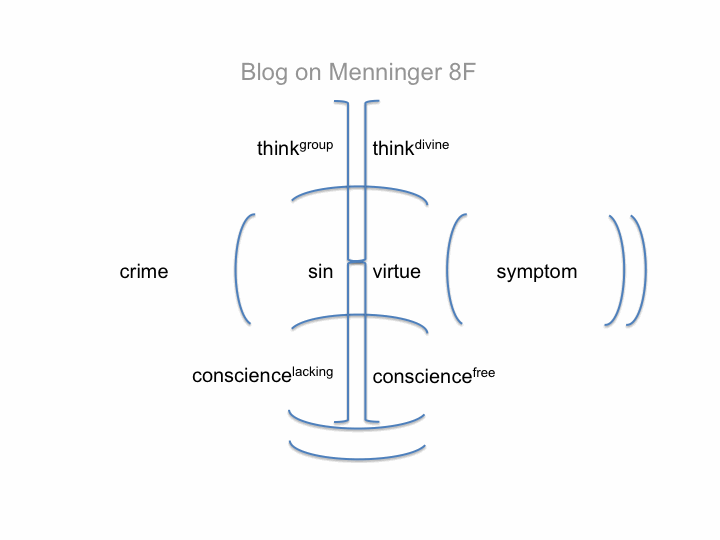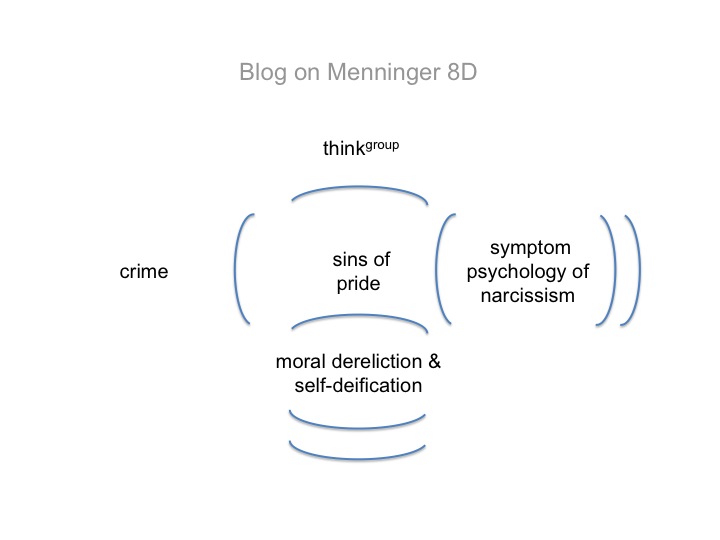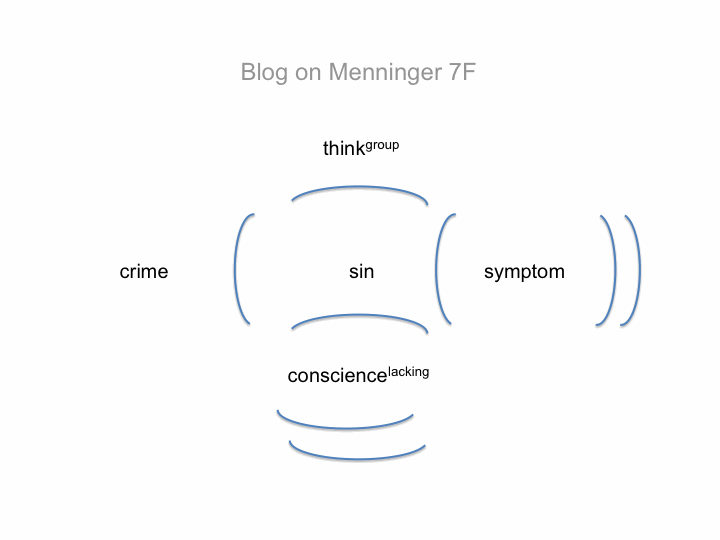The first section is “sin manifested as pride”.
After listing various manifestations of pride, Menninger raised the issue of narcissism.
Narcissism is a “clinical term”, defined as “a disability that could respond to medical mending”. But this does not preclude the view that narcissism is moral dereliction; that is, a “sin”.
Menninger’s conclusion: Character correction should not belong to the private domain of any single professional discipline (137).
Consider this claim in terms of nestedness. Sin belongs to the realm of actuality. We have seen from previous blogs that “the possibility that underlies sin” is “symptom” (which would correspond to a clinical axis) and (from chapter 7) and “lack of conscience” (which would correspond to the group-think axis) – or perhaps – “free will” (which would correspond to a virtuous axis that seems to be an alternative to the group-think axis).
Now, apply this to the “sins of pride”. “Narcissism” belongs to the “symptom”. The two attitudes of “moral dereliction” (137) and “personal self-deification” (137) belong to the alternatives of “lack of conscience” and perhaps, “free will”.
OK. How about “free conscience”?



